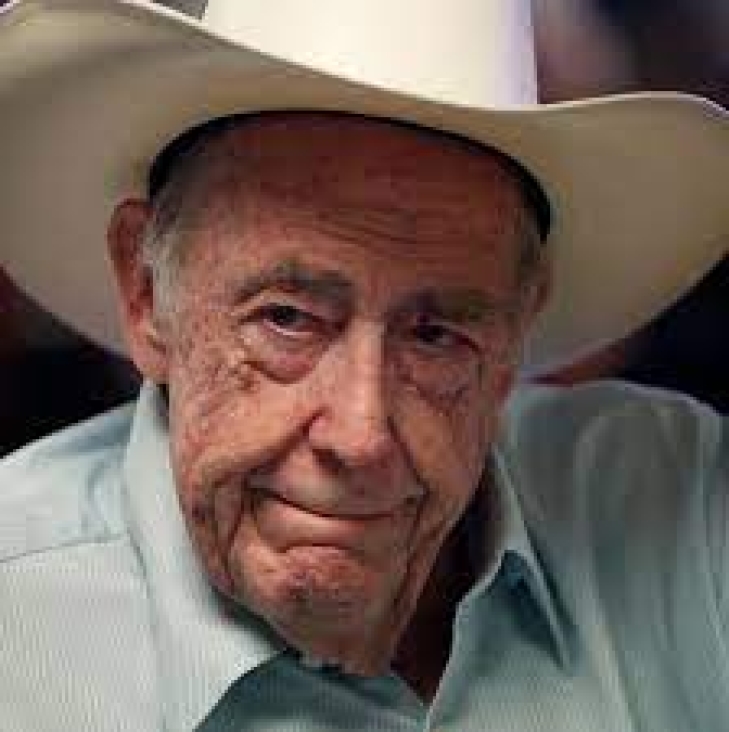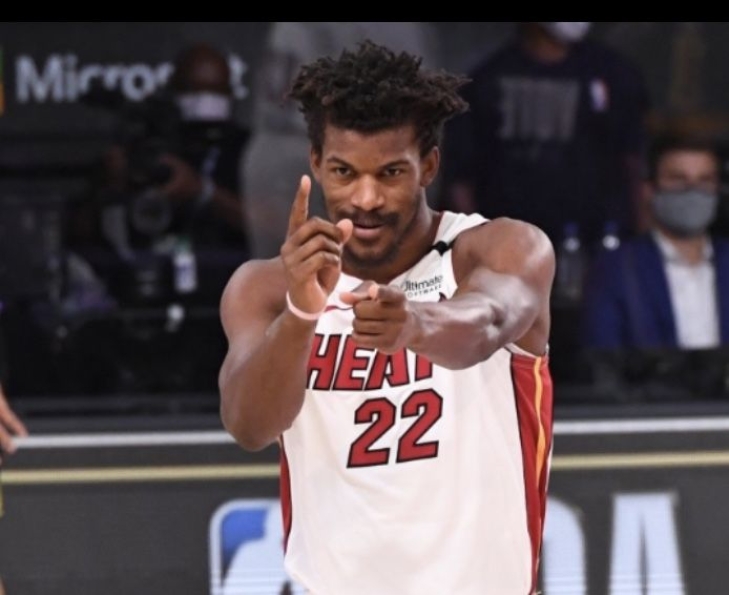
Committee Chairman
RIP: Doyle Brunson
Doyle Brunson, who was considered by many to have been the greatest poker player of all-time, passed away at the age of 89.
A ten-time World Series of Poker bracelet winner (tied for second), and 26-time WSOP final table participant won over six million dollars in earnings. Nicknamed “Texas Dolly”, Brunson was one of the most popular figures of the game, known for his big smile, cowboy hat, and affable personality.
Brunson was inducted into the Poker Hall of Fame in 1988.
We here at Notinhalloffame.com would like to extend our condolences to the fans, friends and family of Doyle Brunson.
CBD Use in Professional Sports: An Overview
Many sportspeople use CBD for various purposes. Some do it discreetly, while others don’t conceal this fact. Here are some famous athletes who are CBD ambassadors.
Famous Athletes Who Are Into CBD
The rise of CBD use across the USA and worldwide is evident. Many people resort to this safe, non-addictive herbal remedy to treat pain, inflammation, stress, and insomnia. The best about CBD is that it is not psychoactive like its fellow cannabis compound THC. Thus, CBD use is generally safe for many adult populations, with meager risks of overdosing or side effects.
Due to such a broad spectrum of CBD’s health benefits, there's nothing surprising about the fact that it has become a close companion of many athletes. People dealing with sports at all levels, from routine wellness to high-rank professional leagues, use CBD-infused products to address pre-competition anxiety, soothe sore and inflamed muscles, and combat chronic or acute pain.
Is this practice legally allowed? What implications does this CBD use have for athletes? Which famous athletes propagate CBD consumption and are open about their CBD regimen? This article will walk you through all these points to show the relationship between CBD and professional sports.
Why Do Athletes Use CBD?
First, let’s start by clarifying the purposes of CBD use for athletes. These are people who train very often and endure immense physical workloads on their bodies every day. Thus, it’s pretty common for athletes to feel soreness and inflammation in muscles and joints after intense workouts, which may exacerbate if not addressed properly. To soothe the pain and relieve the discomfort, athletes apply cooling and painkilling lotions, salves, and roll-ons, many of which are covered at askgrowers.com/cbd/cbd-topicals/cbd-roll-on.
Another aspect with which CBD can help is athletic anxiety; many famous and talented sportspeople lost competitions only because of nervousness and self-distrust. These conditions can be quickly managed with CBD oils and capsules, which contain high CBD concentrations and produce a calming and soothing effect on the user.
Is CBD Use Legal in Professional Sports?
The most important point is that CBD is non-psychoactive, unlike THC, so it won't appear in the drug test and will not impair the athlete's judgment or reaction. The use of CBD is totally safe for the CNS and doesn't cause the intoxication a regular cannabis user could feel. Thus, there is no legal limitation
in WADA or any other reputable sports organization that would prohibit the use of CBD by athletes.
Top 5 Famous Athletes Open About Their CBD Consumption
Now, to see that our words are not empty marketing, let’s consider a list of five world-known athletes who are open about their CBD use and face no legal or professional problems due to this wellness habit.
#1 James Haskell
Haskell, a retired UK rugby star and a holder of 78 senior England cups, is well-known for CBD advocacy and use as a part of his daily wellness regimen. Haskell and his wife, Chloe Madeley, share their fitness and nutrition tips with their followers on social media and talk about CBD as an integral element of their health and vitality. According to Haskell, regular CBD consumption can aid better training performance and speed up athletes' recovery after intense workouts.
#2 George Kruis
Kruis is a well-known rugby player who once played for the Saracens and was an honorable member of the England Performance Squad. While at the Saracens, Kruis was introduced to CBD by his teammate Dominic Day, who felt the whole spectrum of CBD benefits by using CBD remedies for knee injury treatment. Day was impressed with the potency of pain relief and accelerated recovery he experienced with CBD assistance, so he engaged Kruis in CBD use and advocacy. This advice was exceptionally helpful for Kruis after an ankle surgery he sustained due to a sports trauma, making him a dedicated fan of CBD consumption afterward.
#3 Eugene Monroe
Monroe is an NFL star repeatedly noted for avid CBD advocacy. Unfortunately, he had to retire from the NFL at the age of 29, ending his professional career in 2016, because of a severe head trauma sustained during the competitions. However, even before retiring. Monroe advocated CBD use by athletes since 2014, the early years of cannabis legalization and CBD products' entry into the American market.
#4 Mike Tyson
Mike Tyson has a long history of CBD advocacy as a method of improving the athlete's health and well-being. He had a glorious track record of titles and victories in professional boxing and was the first to hold the WBA, WBC, and IBF awards simultaneously. Tyson repeatedly claimed he used CBD before bedtime and in the morning, reporting its consumption for training performance enhancement. Thus, the name of Tyson has been firmly associated with CBD in particular and cannabis advocacy in general. After retiring from professional sports, Mike Tyson even launched his own marijuana growing farm where he cultivates top-tier US cannabis and uses it to produce high-quality cannabis products for American consumers.
#5 Kieran Kevan
Kieran Kevan is a world-known bodybuilder with a tough, demanding training regimen. He has been a role model for many aspiring athletes in this sector for many years and is currently a UK Drug-Free Body Building Association champion. As the UKDFBA name suggests, the organization encourages bodybuilding athletes to grow their muscle mass without using hazardous chemicals. Thus, Kevan propagates the use of CBD (which he often displays in his Instagram posts) as a remedy after a stressful workout and an effective method for post-competition stress relief.
Final Word: CBD and Sports Can Be Friends
So, as you can see now, CBD is absolutely safe and beneficial in many ways to people doing regular sports, from amateurs to top-tier professionals. CBD-infused topicals can help you soothe muscle and joint pain, while CBD products for internal consumption can soothe stress and relieve the burden of chronic overload at training sessions. The key to safe and effective CBD use is to choose a well-matched product to your needs and keep it to a standard dose to achieve optimal effects.
The author of this piece is Tia Moskalenko, a full-time blogger at AskGrowers and a keen fan of using CBD products for health and wellness. Tia collaborates closely with cannabis brands and spreads word of mouth about CBD benefits for various population categories. Her dream is to improve the reputation of the cannabis industry among American users with various health issues, thus helping people transition to safer, non-addictive remedies gifted by nature.
Who do the All-NBA Selections help most for the Hall of Fame?
It is award season in the NBA, and while we have a section (that we are in the process of updating) where we look at every award and its impact in Hall of Fame induction, we have felt that post-season All-NBA honors are colossal.
If you can, indulge us as we look at all 15 All-NBA spots, and offer a quick speculation on what it means for a Springfield spot.
First Team:
Joel Embiid, Philadelphia 76ers. (Ranked #21 on Notinhalloffame’s Active HOF Monitor). The Sixers superstar won the MVP, and is a First Team All-NBA player this year. No player who won the MVP has ever failed to enter the Hall (though we think Derrick Rose will buck that trend), and he could become a Champion this year. This is the season that should cement his induction, and when we revise the Monitor, he will have a monstrous jump.
Jayson Tatum, Boston Celtics. (Ranked #33 on Notinhalloffame’s Active HOF Monitor). Tatum is now a back-to-back First Team All-Star, and if you didn’t think he was not among the top five players in basketball last year, don’t you now? This is a future Hall of Fame inductee.
Giannis Antetokounmpo, Milwaukee Bucks. (Ranked #6 on Notinhalloffame’s Active HOF Monitor). Giannis has already done enough to enter the Hall, and the two-time MVP now has a five-year streak of First Team All-Pros.
Luka Doncic, Dallas Mavericks. (Ranked #27 on Notinhalloffame’s Active HOF Monitor). Doncic will also see a seismic rise in next year’s pre-season Monitor, and while the Luka/Kyrie experiment flopped, Doncic earned this accolade. He is also on a four-year run of First Team All-Pros.
Shai Gilgeous-Alexander, Oklahoma City Thunder. (Unranked on Notinhalloffame’s Active HOF Monitor). Gilgeous-Alexander had his breakthrough, and it is colossal for his Hall of Fame chances. We know that anyone as young as SGA will not enter a Hall on one great year, it is a lot harder for players without a First Team All-NBA to gain induction. He has one now, and isn’t done yet.
Second Team:
Nikola Jokic, Denver Nuggets. (Ranked #8 on Notinhalloffame’s Active HOF Monitor). Jokic did not repeat as MVP, but under next year’s All-NBA format would have added another First Team All-NBA. A two-time MVP will enter the Hall regardless, it is just now whether or not he can be a champion.
Steph Curry, Golden State Warriors. (Ranked #3 on Notinhalloffame’s Active HOF Monitor). Curry is already first ballot, so this doesn’t mean much for Springfield, but notably this is his ninth All-NBA nod.
Donovan Mitchell, Cleveland Cavaliers. (Ranked #44 on Notinhalloffame’s Active HOF Monitor). As big as we said that Gilgeous-Alexander’s First Team, we think this Second Team is bigger for Mitchell. While we said it was possible for a player to make the Hall without a First Team, it is next to impossible to enter without an All-NBA of any kind, despite how many All-Stars you have. Mitchell, who is a four-time All-Star, gains his first All-NBA nod, and should have more in him.
Jimmy Butler, Miami Heat. (Ranked #17 on Notinhalloffame’s Active HOF Monitor). Right here. For our money, the man helped the most is Butler, whose first half was not good enough to earn an All-Star nod, but had a great second half which propelled him to his fifth All-NBA Selection. Butler never was named a First Team, but anyone with five All-NBAs (and five All-Defensives) should now be on the positive side of the fence.
Jaleyn Brown, Boston Celtics. (Unranked on Notinhalloffame’s Active HOF Monitor). Brown finally achieved an All-NBA Selection, and though this is far from enough to even be considered for a plaque, it is an excellent building block for a future conversation.
Third Team
LeBron James, Los Angeles Lakers. (Ranked #1 on Notinhalloffame’s Active HOF Monitor). James is the best player of this generation and adding another All-NBA (his 19th) is a drop in his bucket. Holy crap, 19?
Domantas Sabonis, Sacramento Kings. (Ranked #45 on Notinhalloffame’s Active HOF Monitor). Sabonis had an excellent year, taking the Kings to their first playoff in years. It has been a great fit for Sabonis, who should build on this resume if he stays healthy.
De’Aaron Fox, Sacramento Kings. (Unranked on Notinhalloffame’s Active HOF Monitor). Fox lands his first All-NBA Selection, but has a lot more to do. Is this a one-and-done, or the start of something phenomenal?
Damian Lillard, Portland Trail Blazers. (Ranked #12 on Notinhalloffame’s Active HOF Monitor). Portland was awful, but Dame wasn’t adding his seventh All-NBA. No player with seven of those and seven All-Stars will not be inducted regardless of whether he played in an NBA Final.
Julius Randle, New York Knicks. (Ranked #41 on Notinhalloffame’s Active HOF Monitor). Randle captured his second All-Star and post-season All-Star, and his slowly rising on the HOF radar. Is he considered one now? No, but if he has five more years just like this, he should be borderline.
Notably, Ja Morant’s failure to make the All-NBA cost him nearly 40 millin dollars. Does this make it the most costly Instagram post of all-time?
Damarius Bilbo Shares 6 Pitfalls To Avoid When Negotiating A Sports Contract
Achieving financial success through sports requires careful consideration of numerous factors that ultimately affect the outcome. Agents have become essential advisors in contract negotiation decisions through their unique understanding of player and team needs. However, navigating the details of a professional sports contract can be complex and often filled with potential minefields. In this post, we'll look at six key pitfalls to avoid during contract negotiations to ensure successful long-term outcomes for players and teams alike.
Don't Forget To Read The Fine Print - Understand All Terms And Conditions Of The Contract Before Signing
Expert Damarius Bilbo of Klutch Sports knows contracts are often considered a necessary evil in our modern world. They are signed frequently, whether for a job or a service. But how often do we read the fine print? It can be tempting to skip over it and sign on the dotted line. However, reading and fully understanding all the terms and conditions can save you from many headaches and frustrations. Don't let the excitement of a new job or service blind you, take a breath and read the fine print. It may be tedious at the time, but it can prevent a lot of troubles and surprises in the future. So the next time you're presented with a contract, take the time to fully understand all aspects before putting your signature on it.
Know What You're Worth - Do Your Research On Market Prices For Similar Players And Don't Settle For Less
When negotiating your worth, it's essential to research and know what you're worth in the market. Don't settle for less than what you deserve. Take the time to research market prices for similar players and use that information to your advantage. Knowing your worth gives you leverage in negotiations and allows you to confidently ask for what you deserve. By researching, you can ensure you're not leaving money on the table and receive a fair and equitable compensation package. Remember, advocating for yourself is essential, and being prepared with market research is an excellent way.
Don't Be Afraid To Ask Questions - Make Sure You Understand The Financial Terms Of The Contract
When signing a contract, it can be easy to get caught up in the excitement of a new opportunity and skim over the fine print. However, it's essential to take a step back and ensure you fully understand the financial terms of the agreement before signing on the dotted line. Don't be afraid to ask questions, even if they seem basic or silly. It's better to ask and fully comprehend the terms now than to regret it later when you're over your head. Remember, contracts are legally binding agreements, and you want to be confident in what you agree to. So speak up and ensure that you fully comprehend the contract's financial terms before you commit.
Don't Let Emotions Get In The Way Of Negotiations - Try To Remain Rational And Professional Throughout The Process
Negotiations can often be tricky, and it's easy to let emotions get the better of us. However, remaining rational and professional throughout the talks is crucial to achieving the best possible outcome. Taking a step back, breathing, and thinking before responding to any offer or situation that arises during negotiations is essential. By staying calm and composed, we can ensure that our negotiation strategy remains focused and effective, ultimately leading to a successful outcome for all parties involved.
Have A Contingency Plan In Place If Negotiations Fail - It May Be Helpful To Have A Backup Plan In Case Negotiations Break Down Unexpectedly
Negotiations can be unpredictable. Even if you're confident in your abilities to reach an agreement, it's still essential to have a contingency plan in place. A backup plan can help you prepare for unexpected impasses or breakdowns in the negotiation process. Having a plan B doesn't mean that you're being pessimistic or unprepared, but somewhat proactive. It can help you maintain control of the situation and prevent any adverse effects from unplanned conflicts. So whether you're heading into a business meeting or any other form of discussion, it's always wise to have a backup plan in your back pocket.
Final Thoughts
Ultimately, signing a professional contract is a significant milestone in any athlete’s career. When presented with the opportunity to negotiate terms, it's essential to do thorough due diligence, has experienced legal support on hand, and make sure all parties involved know their roles and responsibilities. It is also vital to approach negotiations rationally rather than emotionally, as there could be severe legal implications if any term or clause of the agreement is breached. Lastly, be sure you have a contingency plan should negotiations disintegrate. Taking the time upfront to ensure you fully understand the nuances of your agreement gives you the best chance of success and enjoyment during this exciting time in your athletic career.





